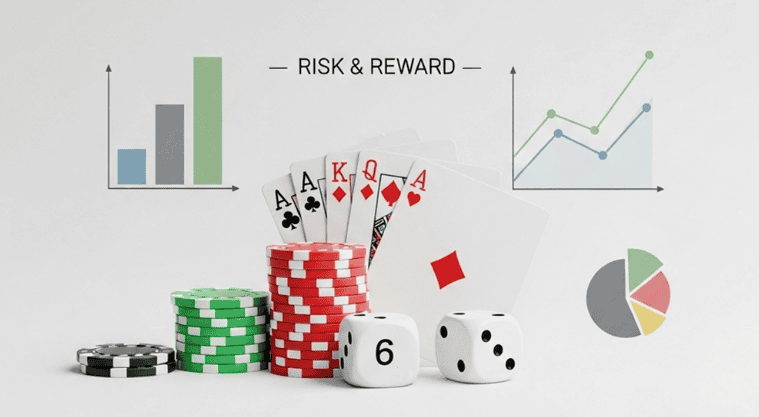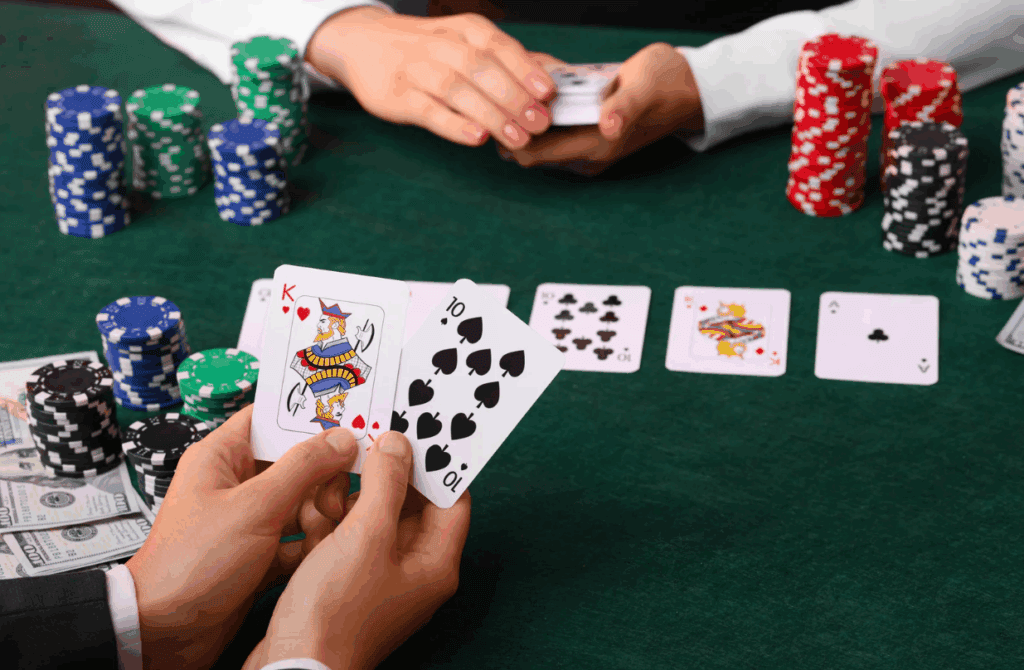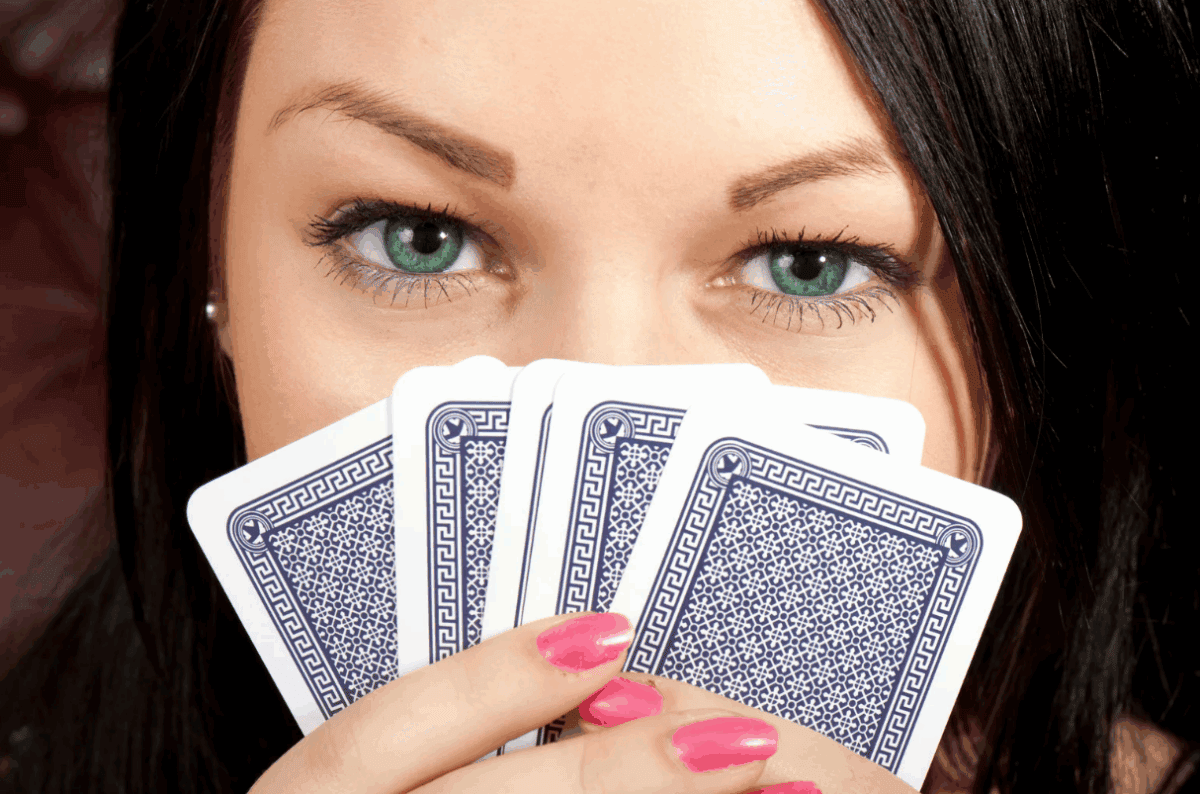Ask most people to thing about gamblers and you might get back descriptions of reckless abandon and compulsive behaviors. However, apart from the hundreds of millions of small stakes gamblers from whom it is a simple hobby, there also exists a tiny subset of people for whom gambling is their full-time income. These are the psychological traits needed for long-term success in this risky but potentially lucrative game.
Cold-blooded. The Iceman. Lizard blood. Cyborg. You only need to look at some of the descriptors applied to top professional poker players over the years to see the broad strokes of what it takes to make consistent money gambling. The rare few professional gamblers, be that in poker, blackjack or sports betting, all share some common traits and skills. These are the most important.

The Core Psychological Traits of a Professional Gambler
The main thing to know about professional gamblers is they are (usually) exceptionally strong-minded, rational and dedicated. That might sound strange to people who aren’t gamblers. After all, the odds of winning the lottery are astronomical.
But the odds of winning at blackjack, are not.
Sure, the house always has an edge. But with the right mathematical mindset, a lot of practice and (of course) some luck thrown in? It is very much possible – albeit extremely hard – to make a full time living gambling
You don’t have to be a professional to try your luck with at online gambling though, as small stakes wins can occasionally hit massive prizes. The Betway register process is simple and stacked with bonus offers and promotions to get you started. There’s a lot to learn from the pros, of course, but the allure of an unlikely slot jackpot or parlay bet win might be worth it for you.
The key psychological traits shared by most professional gamblers include:
- Rationality and math-minded thinking help get the best odds out of any game, avoid games with bad odds and manage bankrolls efficiently
- Emotional control and discipline enables a professional gambler to stick to the planned math-based betting strategy even when outcomes swing to big wins or losses
- A long run mindset, looking at the big picture, to know when to quit a session or take a break
- A desire to learn and improve, which lets pro gamblers master their games of choice and not repeat losing mistakes
Interestingly, a basic knowledge of psychology is very useful for poker players and for casino gamblers. In poker, if you understand your opponents’ body language and psychological tendencies, they can be exploited. In casino gambling, knowing the marketing and psychology tricks game developers play on you helps you to avoid games with bad odds that just look good.
Decision Making In a High-Variance Field
Trying to be a professional gambler is not for, funnily enough, the impulsive and the instinctual player. Knowing cognitive biases and being able to stay cool when unlucky or lucky streaks happen is key.
For example, imagine you hit two consecutive blackjacks for two wins against the dealer. You. my friend, are on a lucky streak and you should immediately double your bet for the next round. It’s going to happen… or is it? Maybe, after two blackjacks, you’re luck has run dry and surely three blackjacks in a row is impossible?
Both of those are wrong. The professional gambler knows to bet the same, every time. Well, maybe, if you reach a certain win amount you can up your bet as a ratio to your bankroll.
But the key point is, changing your bet size or strategy based on a hunch or a gut feeling about luck is mathematically not the right decision.
This is an example of the famous Gambler’s Fallacy. Given the deck is shuffled after every hand, the chance of getting a blackjack on any one hand is exactly the same. Whether you hit five in a row, or 10 in a row, or none for a hundred hands.
Other cognitive fallacies and biases professional gamblers think about include:
- Outcome bias – when a decision is judged by the result, not the process. In gambling you can make the right play and get unlucky, or make the wrong play and luckily win. The key is the right play will win more often in the long term.
- Near Miss Effect – The false idea that because a number or spin was close to a winner, it is more likely to hit next time or any other time. Gambling games use this a lot, especially in predetermined bonus rounds for slots.
- Confirmation bias – we all want to believe that we’re lucky. The professional gambler knows luck, in gambling at least, is a game of numbers. Just because you’re a winner today, or this week, or this year, you shouldn’t expect to be a winner forever. Especially if you lose focus and make bad decisions.
Studies have confirmed that problem gamblers are far more susceptible to these biases, than casual or professional gamblers who are in control of their behaviour.

Charisma and Business Savvy Can Turn Losses to Wins
In the modern world, there are other ways to make money from gambling. For example, slots were traditionally not really the field of pro gamblers. A few solitary figures throughout the years, but most found the odds too varied for consistent profit.
In the 2020s however, social media has flipped that around. If you’re charismatic enough and start off with a big enough bankroll, you can gamble slots professionally – because social media views and sponsorships cover your losing periods. And if you play enough slots, you might hit a jackpot. Which brings in even more money from bigger views.
High profile individuals who turned to social media to fund their gambling and turned it into an income include:
- TrainwrecksTV
- Adin Ross
- Vegas Matt
- xQc
- Roshstein
- Brian Slots
Understanding When Gambling is a Problem
However, as many of the above now-famous gamblers have publicly talked about in the past – even professionals have to know when to quit. In fact, for the actual math-minded advantage players who aren’t social media famous, it’s downright vital.
Understanding when a losing streak is tilting you into making worse decisions, or just, sometimes, feeling like it won’t end, is when you should stop for the session.
On the more extreme end of the scale, when you can no longer be careful with your bankroll you could well have a problem. The professional maintains full control, and will be aware of the financial risks when calculating their gambling budget. Much like a business does with investments.
Which is not to say there aren’t people who didn’t know when to quit and failed along the way. Professional gambling is hard – extremely so – but this has been the traits of the people who did make it.


